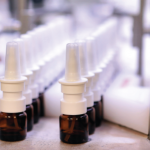Results from this study indicate that in normal mice, repetitive UV light induces a modest amount of interferon that appears to be a protective mechanism for wound healing, Dr. Elkon concluded. The key unanswered question and one that continues to be studied at his lab is how the response might differ in patients with lupus, he said.
Pathogenesis of RA
Michael Holers, MD, a professor of medicine who heads the Rheumatology Division at the University of Colorado, Denver, devoted much of his talk to findings and questions on the pathogenesis of rheumatoid arthritis (RA).
Over the past 15 years, Dr. Holers and his team of researchers have focused on trying to figure out how someone can go from seemingly completely normal to developing the destructive disease of RA. He highlighted “interesting insights into the real origins” of the disease and data that autoimmune diseases begin far earlier than diagnosis.
In one study, researchers accessed a military repository of 50 million serum samples and identified 83 patients with stored blood samples obtained up to 10 years before they were clinically diagnosed with RA.
Symptoms of the disease in this cohort began an average of several months prior to the actual diagnosis. The samples revealed that a majority of this time period was characterized by a tremendous increase in autoreactivity to various peptides and also to cytokines and chemokines, explained Dr. Holers.
It is like a “gathering storm” effect as the disease evolves, he said. The data revealed the possibilities of understanding the disease in the very early period before clinical development of RA.

Dr. Holers
Dr. Holers included an overview of studies involving populations at high risk for developing RA. He noted that when screening at-risk populations, researchers saw the same elevations of cytokines and chemokines that were seen in the retrospective study of military samples.
The presentation wrapped up with Dr. Holers’ hypothesis that the disease of RA is a mucosal-driven process.
“What we see in our studies of at-risk populations is circulating autoimmunity and evidence of mucosal abnormalities,” he said.
A number of RA prevention approaches, such as risk-modifications that include smoking cessation and diet supplementation with Omega 3 fatty acids, are ongoing, Dr. Holers said. He noted that a new prevention study has just received funding to look at high-risk populations of RA antibody-positive, but disease-negative individuals.
Catherine Kolonko is a medical writer based in Oregon.



